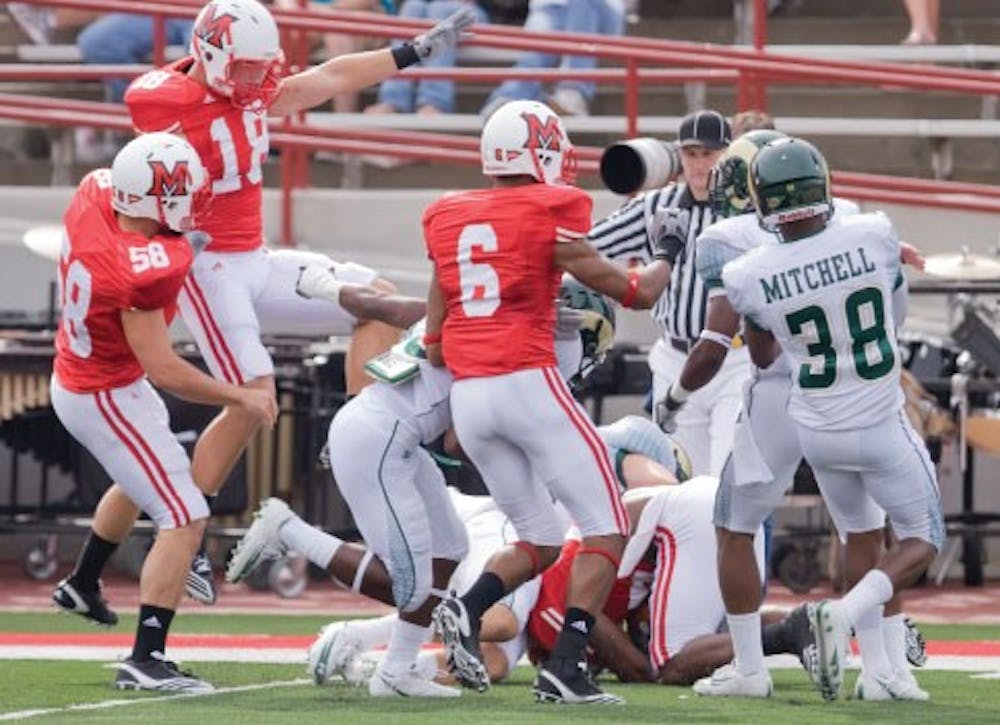
Miami University football takes on Colorado State University Sept. 18 at Yager Stadium. (MICHAEL GRIGGS | The Miami Student)
The Miami University Athletic Department is being urged by the Strategic Priorities Task Force (SPT) to re-examine the funding of intercollegiate sports.
Currently, Miami athletics receive 26.6 percent of its funds from outside the university.
The SPT is recommending that by 2015, 41.6 percent of athletic funding come from outside the university.
This means the Athletic Department needs to increase non-university revenue from the current $5.01 million to $7.74 million in 2015, or cut its operating budget by 15 percent.
During a difficult economy, a lot of pressure is being placed on the university to fund athletic programs, according to Athletic Director Brad Bates.
Only 14 athletic departments across the country generated a profit last year, Bates said.
While Big Ten schools receive substantial payment from their conference, Mid-American Conference (MAC) schools do not.
"Even schools in the Big Ten are relying on their universities to subsidize their athletic program," Bates said.
Ten out of 21 schools with the highest proportion of subsidy are in the MAC, according to NCAA statistics.
The recommendation from the SPT asks the Athletic Department to look into how it is funding its programs.
Enjoy what you're reading?
Signup for our newsletter
"We're trying to transform Miami into a better, stronger university," Bates said.
Athletics is facing some challenges incorporating the recommendations, Bates said.
Barbara Jones, vice president of student affairs, said the recommendations are meant for reaction.
"It is up to athletics what they do to meet those recommendations," Jones said.
Bates is working to balance the task force's recommendations while still fulfilling guidelines from the NCAA, MAC and Title 9.
While Miami has to subsidize the Athletic Department, Bates still believes athletics are a crucial part of the university.
Since sports are so highly valued in today's society, athletics have become a marketing tool for the university as a whole, Bates said.
When Miami sports are televised, that coverage comes with a promotional spot on national TV that would normally cost the university thousands of dollars, according to Bates.
"That's promoting the university itself," Bates said.
Senior Jordan Gafford, a football player, said generating support is important for the football team to succeed.
"More successful teams are more fun to watch," he said.
Bates has discussed strategies to encourage this kind of support. Certain games have been moved to larger stadiums to accommodate larger audiences and larger profit.
Bates said more efforts need to be made for university athletics to become profitable.
"We have to get more creative to generate more revenue," he said.




